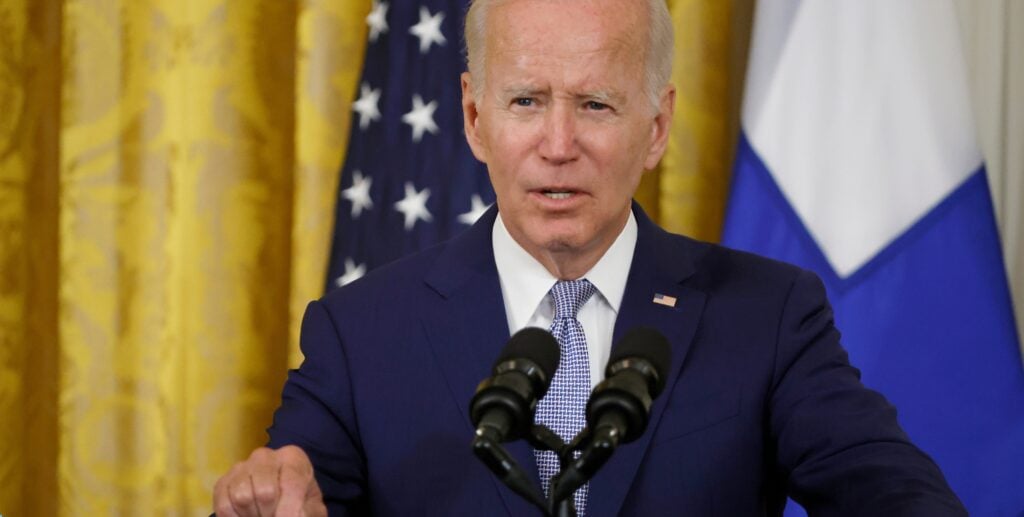President Biden just announced new actions to lower housing costs, aimed at corporate landlords who own over 50 units, to make housing more affordable for tenants. Additional initiatives aimed at sparking more affordable housing development could be an opportunity for investors.
The main points of the president’s proposal are, according to a press release:
- Calling Congress to pass legislation to either cap rent increases on existing units at 5% or risk landlords losing valuable federal tax breaks. The most obvious assumption would be to target depreciation and 1031 exchanges.
- Repurpose public land sustainably, allowing 15,000 additional affordable housing units to be built in Nevada.
- Rehab distressed housing, build affordable housing, and revitalize Las Vegas neighborhoods.
The president called on Congress to make housing more affordable for American families by passing the Biden-Harris Housing Plan. It would allow the construction of 2 million homes and provide $10,000 in mortgage relief to enable homeownership.
According to the White House’s press release, more homes are under construction than in the last 50 years, and new housing construction is up 17% over the Trump administration.
The White House also highlighted several high-profile cases of corporate landlords being named in pending litigation (referring undoubtedly to the RealPage lawsuit), citing “their alleged use of proprietary algorithms to raise rents on tenants.”
What Rental Protections Mean for Landlords
Crucially for landlords, the Federal Housing Finance Agency (FHFA) is announcing new actions to protect renters in multifamily properties financed by loans acquired by Fannie Mae and Freddie Mac. The new protections apply to future loans with Fannie and Freddie (the government-backed housing organizations have funded an average of 1.2 million rental units over the past three years). Landlords in these buildings must adhere to the following:
- Requiring 30-day notice before rent increases;
- Requiring 30-day notice on lease expiration; and
- Providing a five-day grace period before imposing late fees on rental payments.
Repurposing Public Land for Affordable Housing
Repurposing city-owned land to build more affordable housing is not a new concept. It is often used in dense urban centers such as New York City. However, the Biden administration plans to do the same thing to repurpose federal land to build tens of thousands of affordable homes in Nevada.
The Bureau of Land Management (BLM) announced the opening of a public comment period on a sale of 20 acres of public land to Clark County, Nevada, for below market value at just $100 per acre—the largest-ever sale for affordable housing under the Southern Nevada Public Lands Management Act program, which the county estimates will enable the development of nearly 150 affordable homes for households making less than 80% of area median income.
Other land and housing initiatives throughout Nevada were also announced, including housing-related requests for the roughly 26,000 acres in Las Vegas Valley that remain under BLM control and are eligible for disposition under the Southern Nevada Public Lands Management Act program.
Choice Neighborhood Grants Can Benefit Developers and Investors
The government is dedicating $325 million of HUD grants toward Choice Neighborhoods implementation grants to build new homes and spur economic development. Grantees will collectively develop over 6,500 new mixed-income units, including one-for-one replacement of 2,677 severely distressed public housing units. These rewards will be shared amongst nonprofits and local developers, including house flippers, to revitalize communities that adhere to government guidelines.
Final Thoughts
The new Biden-Harris housing initiatives accomplish several important tasks, some with clear political motives. They prioritize affordable housing—which is urgently needed—and spotlight Nevada, a swing state that could decide the 2024 presidential election.
For investors, there are opportunities to work within the system and utilize government grants to build and renovate affordable housing that fits within federal guidelines. The advantage for seasoned flippers is that, in many instances, there might be a line of waiting buyers who have been through government-backed affordable homebuying programs with low interest rates, or they might have preapproved renters ready to move in with Section 8 vouchers or other government-endorsed programs.
Regarding the 5% rent cap: In other parts of the country—notably New York City—it has been common practice to have a 5% rent cap on increases per year. That will now apply nationwide for buildings of a certain size. How this will affect the redevelopment of multi-unit buildings where investors are relying on raising rents to turn a profit after renovating an apartment remains to be seen.
Ready to succeed in real estate investing? Create a free BiggerPockets account to learn about investment strategies; ask questions and get answers from our community of +2 million members; connect with investor-friendly agents; and so much more.
Note By BiggerPockets: These are opinions written by the author and do not necessarily represent the opinions of BiggerPockets.




